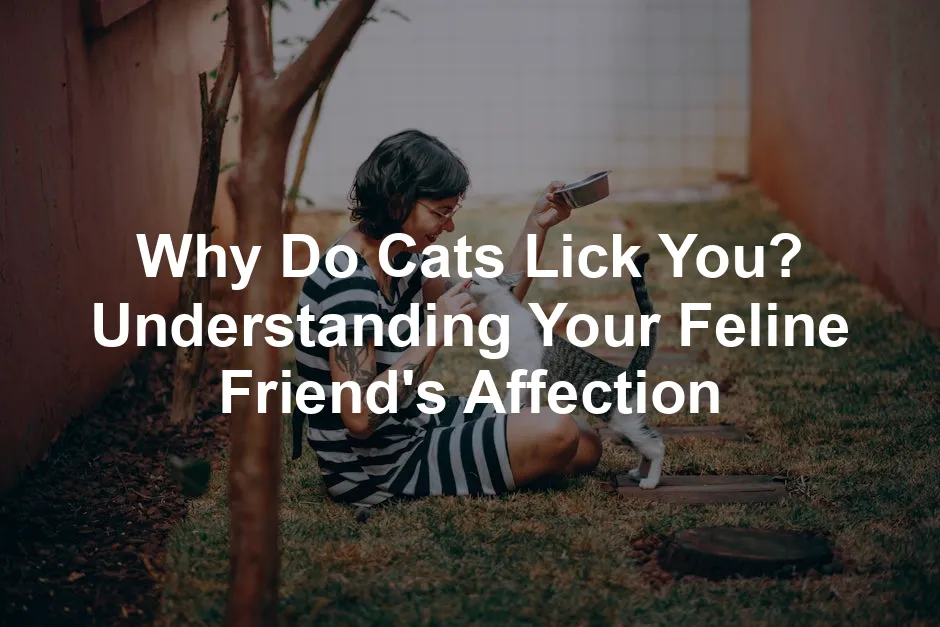
Why Do Cats Lick You? Understanding Your Feline Friend’s Affection
Introduction
Cats have a unique way of showing affection that often leaves their human companions puzzled. If you’ve ever found yourself on the receiving end of a thorough cat licking session, you might have wondered, “Why is my cat licking me?” Is it a sign of love, a plea for attention, or simply a quirky feline behavior? In this comprehensive guide, we’ll explore the many reasons behind your cat’s licking habits, unraveling the mystery of this endearing behavior. Spoiler alert: it’s not just because you’re a tasty snack! When cats lick, it can feel like a sweet gesture, but there’s a lot more happening beneath the surface. Licking is a natural behavior rooted in their instincts, often learned during kittenhood from their mother. It’s not just a grooming technique; it’s a social signal. Cats communicate with each other through grooming, and they extend this behavior to their favorite humans. Moreover, licking serves several purposes, from bonding to comfort. If your cat is licking you, it might be saying, “Hey, I trust you!” or, “Can we cuddle more?” Understanding this behavior not only strengthens your bond but also helps you decipher your cat’s needs and emotions.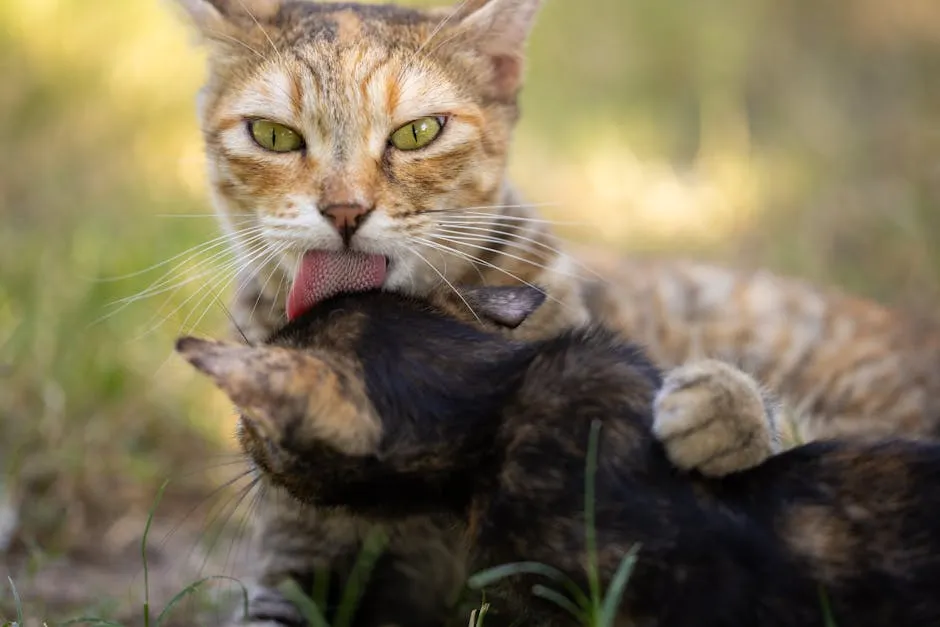
While your cat is busy grooming you, why not return the favor and keep their coat looking fabulous with a Cat Grooming Brush? It will help remove loose fur and keep their coat shiny, making those affectionate licks even more delightful!
So, the next time your furry friend gives you a tongue bath, remember: it’s not just a quirky habit. It’s a complex mix of affection, instinct, and sometimes, a little bit of curiosity about that intriguing scent on your skin. Let’s dive deeper into what those licks really mean!Summary: Key Points to Spark Curiosity
Cats are complex creatures with a myriad of behaviors, and licking is one of the most common yet misunderstood. Cats lick their humans for various reasons, including showing affection, marking territory, or even seeking comfort during stressful times. In this article, we will explore the psychology of why your cat may choose to lick you instead of just grooming themselves or another feline friend. We’ll discuss the evolutionary background of licking behavior, how it relates to social bonding, and what it means when your cat licks you excessively. Additionally, we’ll uncover the reasons why a cat’s lick can feel surprisingly painful and when it’s time to seek veterinary advice. Understanding these behaviors can help you foster a better relationship with your furry companion. So, whether you’re an experienced cat owner or a new pet parent, you’ll find valuable insights that might just change the way you perceive your cat’s affectionate licks. The next time your kitty gives you a slobbery surprise, you’ll be ready to interpret their love language with confidence!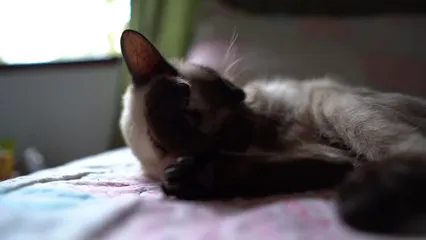
And speaking of love, why not reward your kitty’s affection with a Cat Treats Variety Pack? It’s the purr-fect way to show your appreciation for those slobbery licks!
Understanding the Behavior of Cats
The Importance of Grooming in Cats
Grooming is a fundamental part of a cat’s life. It’s not just about looking fabulous; it plays a crucial role in self-maintenance and social bonding. Cats spend a whopping 8% of their waking hours grooming themselves! This time spent helps them remove dirt, loose fur, and parasites while also distributing natural oils for a shiny coat. But there’s more! Grooming also serves a social function. Cats will groom one another, known as allogrooming, which strengthens their social bonds. This behavior fosters trust and unity, making it essential for their well-being. So, the next time you see your cat diligently grooming, remember, they are not just being vain; they’re maintaining their health and relationships!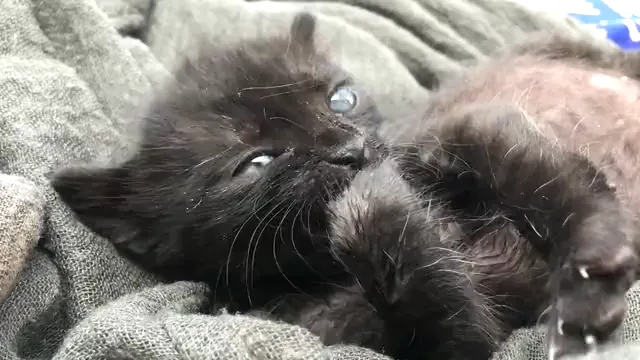
To keep your cat’s grooming game strong, consider investing in a Cat Shampoo that’s gentle and effective. A clean cat is a happy cat, and a happy cat is more likely to shower you with love (and licks)!
The Social Aspect of Licking
Licking isn’t merely a cleaning ritual; it’s a way for cats to communicate. Allogrooming among cats signifies acceptance and trust within their social group. When your cat licks you, it’s likely an extension of this behavior. Your feline friend is saying, “You are part of my family!” This licking can symbolize love and affection towards you, much like how a mother cat grooms her kittens. When your cat enthusiastically licks your hand, they’re expressing trust. They see you as a safe companion, worthy of their affection. This social aspect of licking highlights the bond you share with your furry friend. Understanding this behavior can help you appreciate those moments when your cat decides you’re the lucky recipient of their grooming!
Reasons Why Cats Lick Humans
1. Affection and Bonding
Cats have a maternal instinct that drives them to groom. This behavior mimics how mother cats care for their kittens, nurturing and bonding with them. When your cat licks you, it’s their way of saying, “I love you!” It reinforces that special bond between you two.2. Seeking Attention
If your cat licks you, they might be looking for attention. Cats quickly learn that licking leads to interaction. If you respond by petting or talking to them, they’ll lick more often. It’s a clever way to get you involved in playtime!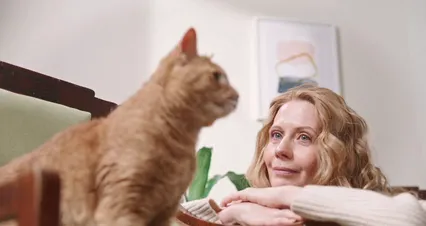
3. Marking Territory
Licking isn’t just about affection; it’s also territorial. Cats have scent glands in their mouths, and when they lick you, they’re marking you as theirs. It’s their way of saying, “You belong to me!” This behavior can be especially apparent in multi-pet households.4. Taste and Curiosity
Ever wondered why your cat licks you right after you’ve used lotion? Cats are curious creatures. They may lick your skin to explore appealing scents or tastes. If you’ve been cooking or have fragrant lotion on, your cat might find it irresistible!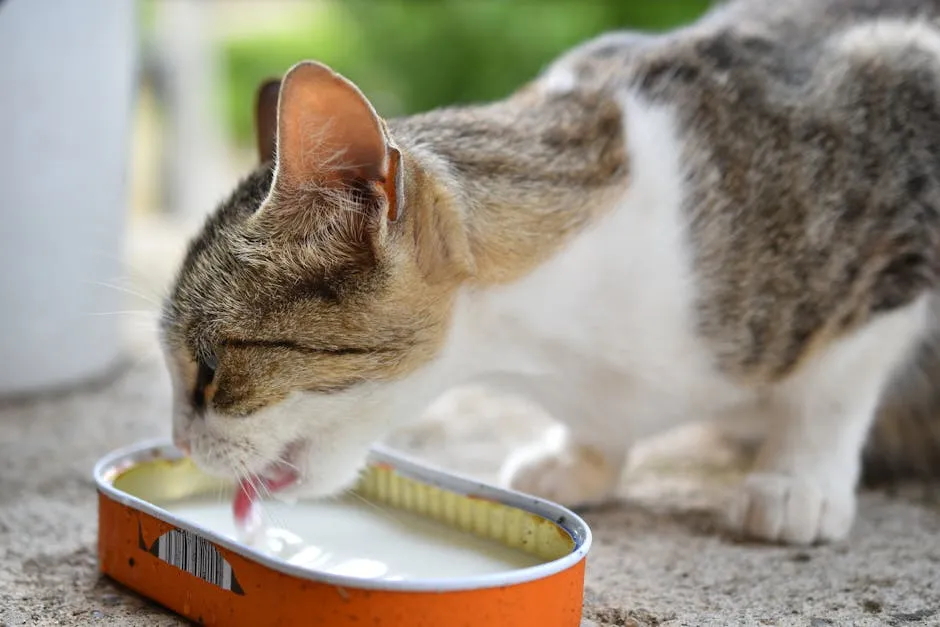
And speaking of irresistible, treat your feline friend to some fun with an Interactive Cat Toy. It’s a great way to keep them entertained and distracted from their licking habits!
5. Stress and Anxiety
Excessive licking can indicate stress or anxiety. If your cat is feeling uneasy, they might lick you as a comfort mechanism. It’s their way of finding solace in you. If you notice this behavior increasing, it might be time to identify potential stressors in their environment.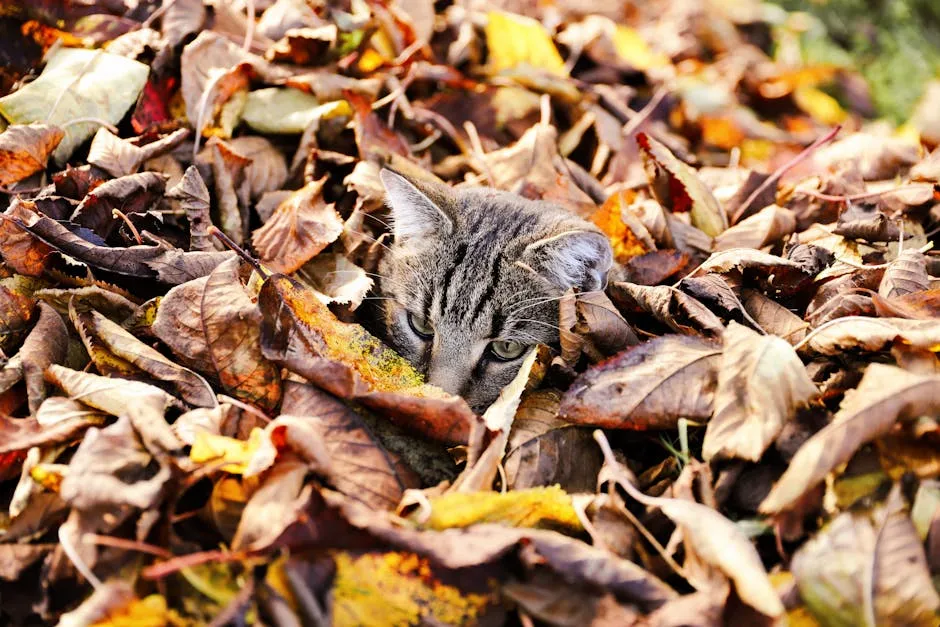
6. Medical Reasons
Sometimes, licking is a sign of an underlying medical issue. If your cat starts licking excessively or in unusual ways, it’s wise to consult a vet. This behavior might be their way of communicating discomfort or unease, so paying attention is essential. Understanding these reasons helps create a stronger bond with your furry friend while ensuring their well-being. So, the next time your cat gives you a thorough licking, you’ll know it’s more than just a quirky habit; it’s a communication of love, curiosity, and sometimes, a little bit of concern!
Why Does It Hurt When My Cat Licks Me?
Have you ever felt like your cat’s tongue is a mini sandpaper factory? You’re not alone! A cat’s tongue is lined with tiny spines called papillae. These little guys are not just for show; they serve a crucial purpose. Papillae are made of keratin, the same stuff as our fingernails. They help cats groom themselves by removing dirt, loose fur, and even parasites. Imagine your cat’s tongue as a built-in brush! When your furry friend gives you a lick, those spines can feel abrasive, especially on sensitive skin. Why is it rough? When a cat licks, the papillae act like tiny hooks. They snag onto anything in their path, including your delicate skin. This rough sensation can sometimes feel painful, especially if your cat is overly enthusiastic. If they lick the same spot repeatedly, it can lead to irritation. So, next time your cat decides to give you a tongue bath, brace yourself for that sandpaper-like touch. It’s their way of showing affection, but it might not always feel like a gentle caress! Understanding this aspect of your feline friend’s anatomy helps clarify why those loving licks can come with a side of discomfort.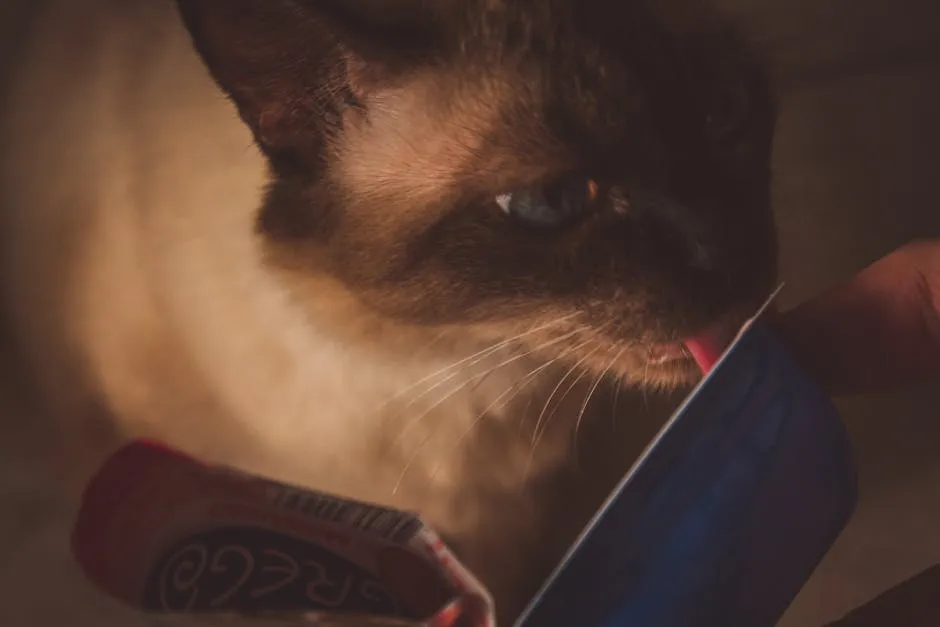
Is It Safe to Let Your Cat Lick You?
While it can be sweet to let your cat lick you, there are some important safety considerations. First, let’s talk bacteria. Cats’ mouths naturally harbor bacteria that could lead to infections, especially if they lick open wounds. If you’re healthy, you might brush off those licks, but be cautious if you have cuts or are immunocompromised. Don’t let your cat lick your face. This is especially important if they’re prone to dental issues. The bacteria Pasteurella multocida and Capnocytophaga canimorsus can be problematic if they enter your bloodstream. Even if your cat is healthy, their saliva can carry germs that might not affect them but could be risky for you. To ensure safe interactions, avoid allowing your cat to lick any open wounds or areas with cuts on your skin. If your cat has a habit of licking certain parts of your body, consider redirecting their attention to toys or treats. Remember, while a cat’s lick can feel affectionate, it’s essential to be mindful of hygiene to maintain a healthy bond.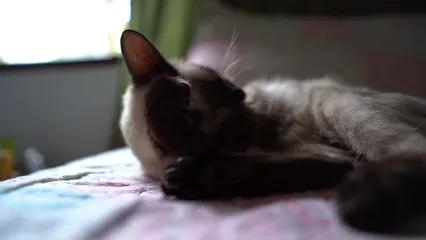
To help manage your cat’s licking habits, consider investing in a Cat Nail Clippers. Keeping their claws trimmed can reduce excessive licking and help maintain your skin’s integrity!
How to Discourage Excessive Licking
1. Redirecting Their Attention
Cats are easily distracted, especially when playtime is involved! To cut down on excessive licking, engage your feline friend with interactive toys. Wand toys, laser pointers, or even a good old-fashioned ball can capture their attention. When they start licking, redirect their focus. Toss a toy, and watch them pounce! This not only diverts their licking but also strengthens your bond through play.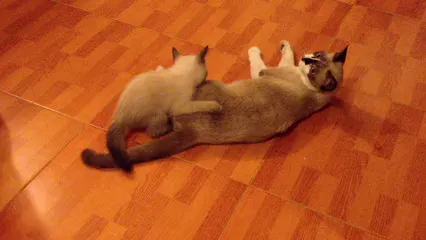
2. Environmental Enrichment
A bored cat is often a licking cat. To keep your kitty engaged, provide various stimulation options. Consider cat trees, scratching posts, or even puzzle feeders. Rotating toys regularly can keep their curiosity piqued. Create an environment where your cat has plenty to explore. When they have outlets for their energy, they’re less likely to resort to licking for entertainment.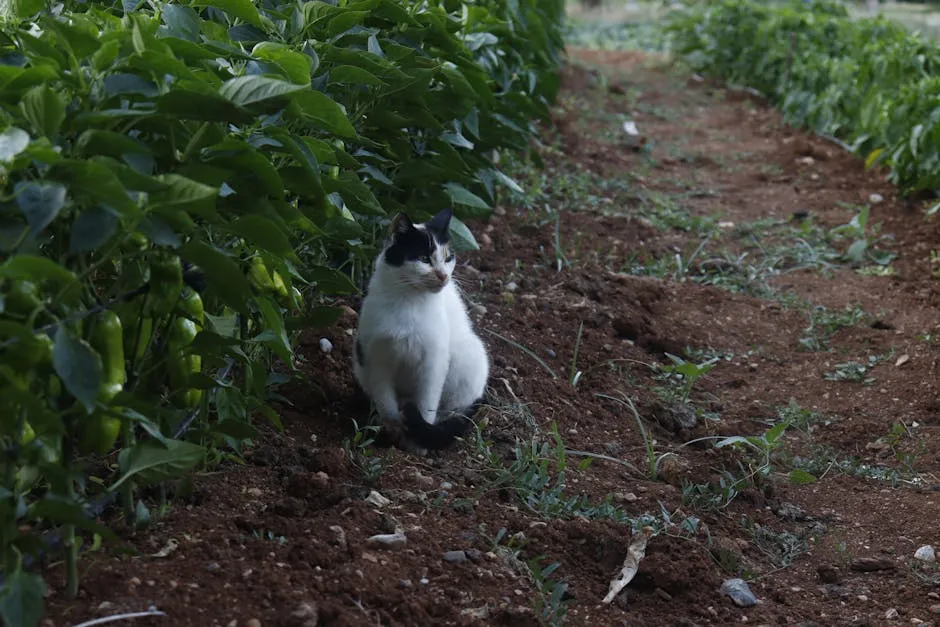
Enhance their playtime with a Cat Tree Tower that offers climbing and scratching opportunities. It’s a feline paradise that keeps them busy and happy!
3. Understanding Body Language
Your cat communicates with you through body language. Learning to recognize their signals is key! If they start licking excessively, it might indicate overstimulation. Watch for signs like flicking tails or pinned ears. If you spot these, it’s time to give them space. Respect their boundaries to avoid excessive licking. A little mindfulness about how your cat feels can go a long way in curbing unwanted behaviors.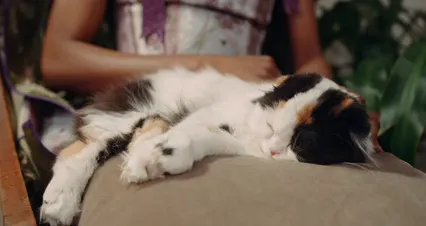
Conclusion
In conclusion, understanding why your cat licks you can deepen the bond between you and your feline friend. Cats have unique ways of expressing affection, and licking is one of their charming quirks. It often signifies trust and love, a sweet reminder that you’re part of their inner circle. However, it’s equally important to recognize when licking might suggest stress or underlying health issues. If your kitty’s licking becomes excessive or changes suddenly, it might be time for a vet visit. By being attentive to your cat’s needs and behaviors, you can create a nurturing environment that caters to both their emotional and physical well-being. Ultimately, knowing the reasons behind those loving licks can transform your relationship with your furry companion, making every moment together even more special.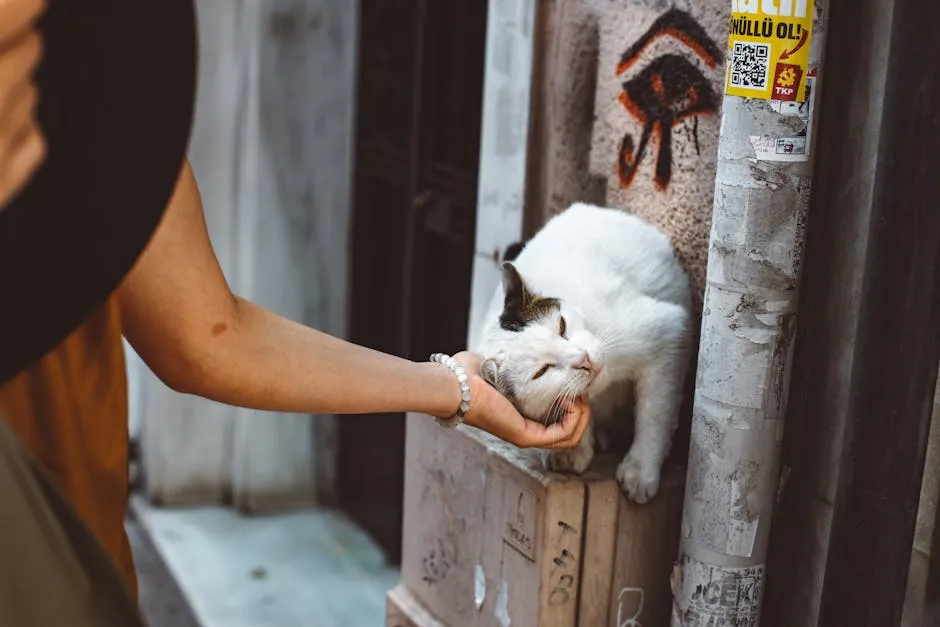
And if you want to keep your kitty cozy, consider a Cat Bed that provides the perfect snuggle spot. A well-rested cat is a happy cat!
FAQs
Why does my cat lick my face?
Your cat may lick your face for several reasons. It’s a sign of affection, similar to how they groom their fellow felines. They might also be marking their territory or simply enjoying the taste of your skin, especially if you’ve recently applied lotion or have food remnants. This behavior signifies trust and a desire to bond.
Why does my cat lick me, then bite me?
Licking can sometimes lead to biting due to overstimulation. Your cat may feel overwhelmed by too much affection or petting, and the bite is a way to communicate that they need a break. Recognizing their body language can help prevent this transition from licking to biting.
Is cat saliva harmful to humans?
While cat saliva isn’t typically harmful, it can carry bacteria that pose a risk, particularly to immunocompromised individuals. It’s best to avoid letting your cat lick open wounds, as this could introduce harmful bacteria into your body. Always wash any licked areas thoroughly.
What should I do if my cat licks excessively?
If your cat licks you excessively, first assess their environment for stressors. Try providing more interactive play or distractions to keep them engaged. If the licking persists or seems compulsive, consult your veterinarian to rule out any underlying health issues or anxiety.
Please let us know what you think about our content by leaving a comment down below!
Thank you for reading till here 🙂
All images from Pexels




